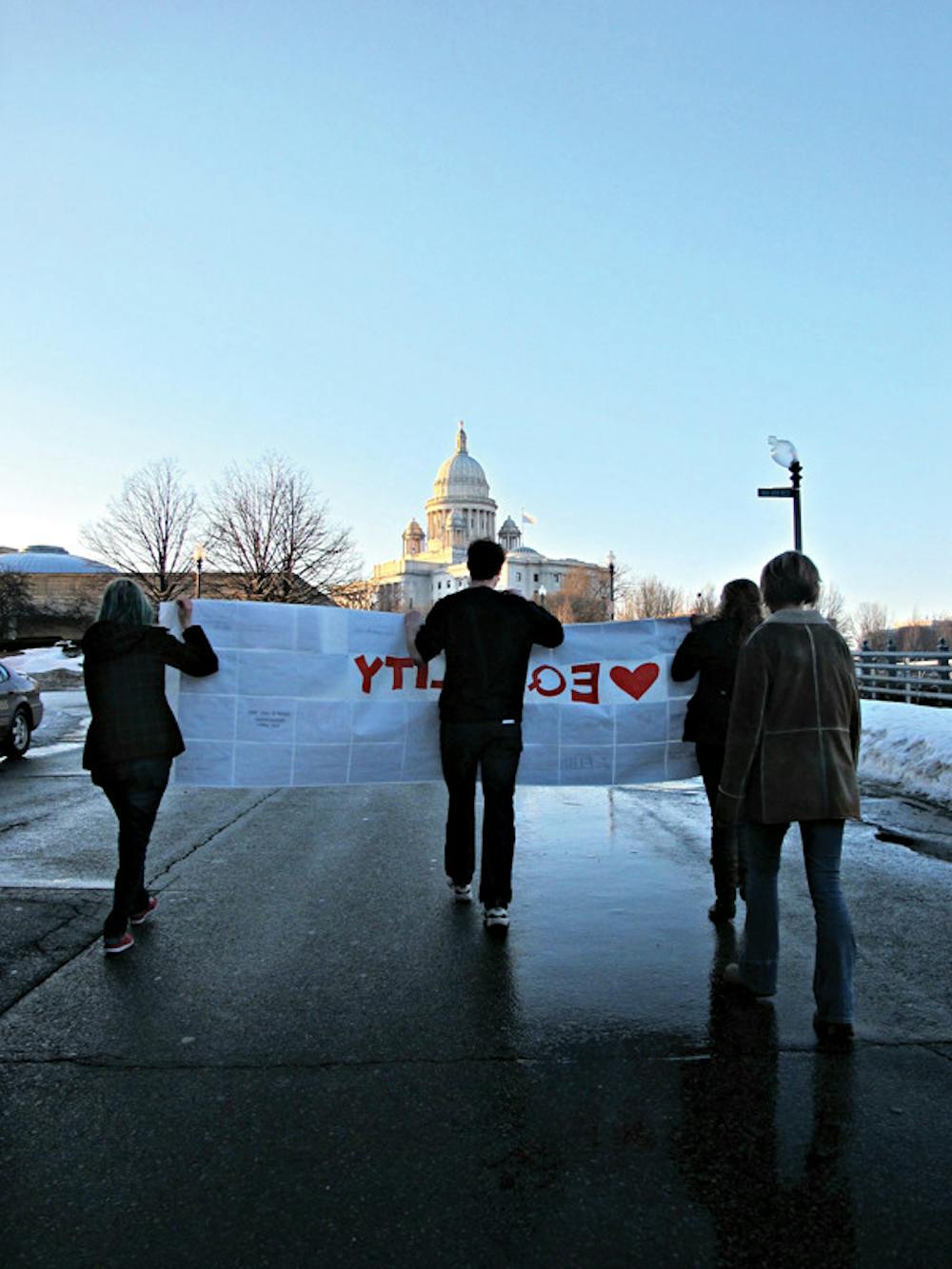Rhode Island’s history with same-sex marriage legalization has come in fits and starts.
It began nearly 20 years ago with a bill introduced in 1997 by openly gay former Rep. Mike Pisaturo, D-Cranston. The bill contained two lines and stated that “persons of the same gender shall be eligible to marry.” The legislation was referred to the House Judiciary Committee, where it never received a vote.
The following year, Pisaturo introduced a similar bill, which added that only “ordained clergy and elders in good standing shall not be required to join persons of the same sex in marriage, although they are empowered to do so.” After it fail to receive a committee vote in 1999, then-state representative from Providence Rep. David Cicilline ’83, D-R.I., an openly gay member of the Judiciary Committee, successfully secured a vote. But Cicilline cast the only vote for the proposal, so it was defeated. Pisaturo reintroduced the bill every year — without ever receiving another committee vote — until he lost reelection in 2002.
Rep. Arthur Handy, D-Cranston, has introduced the bill in Pisaturo’s place every year from 2003 to 2013. The legislation passed the House 51-19 in January.
A similar bill was introduced in the Senate by former Sen. Rhoda Perry P’91, D-Providence, from 2000 to 2012. Donna Nesselbush ’84, D-Pawtucket, took up Perry’s reins this year by introducing the bill that is currently before the Senate Judiciary Committee. Throughout the years, the bill has undergone wording revisions for the sake of clarity, Handy said. But the changes have never been a “compromise measure” to appease critics of the bill, he added.
Bills to explicitly make same-sex marriage illegal in Rhode Island have continued to be introduced over the past 17 years in both the House and Senate. On the same day in 1997 that Pisaturo introduced a bill to legalize same-sex marriage, former Rep. Susan Iannitelli, R-Smithfield, introduced a bill that would prevent Rhode Island state government from legally recognizing same-sex marriages that took place in other states. Many of the bills used the language “one man, one woman” to define a marriage.
In same-sex marriage’s 16-year legislative history in Rhode Island, the House Judiciary Committee has only voted on the legalization twice — once when it received one vote from Cicilline — and on Jan. 24 of this year when it passed unanimously and was sent to the House floor.
“This has been a year of firsts,” said Ray Sullivan, campaign director for Marriage Equality Rhode Island.
Handy said he thought the bills he introduced began to be viable starting in 2004 after Massachusetts legalized same-sex marriage through a state Supreme Court decision. In 2011, the bill seemed more likely to pass than in previous years, especially in the House, Handy said.
But “the momentum shifted against that bill pretty quickly and surprisingly,” instead turning toward the legalization of civil unions, he said. The General Assembly approved civil unions, and the law went into effect in July 2011.
Marriage equality groups were dissatisfied with the civil union compromise, which “provide(d) a separate and unequal status for gay and lesbian couples,” and so they continued to push for same-sex marriages, Sullivan said.
The 2011 swearing in of Gov. Lincoln Chafee ’75 P’14, who promised during his campaign to sign same-sex marriage legislation if it passed the Generaly Assembly, marked a milestone in the legislative battle for same sex marriage, Handy said.
Rhode Island’s previous governor, Donald Carcieri, had committed to vetoing any legislation legalizing same-sex marriages or civil unions, Handy said. It was very difficult to get a vote on the bill during Carcieri’s time because the governor would strike it down anyway, he added.
The elections of November 2012 improved prospects for same-sex marriage bills, adding five senators and 10 representatives who openly supported the legislation, Sullivan said.
“We have more support in both chambers than at any other point in history,” Sullivan said. He added that the elections demonstrated “that there were consequences for not being on the right side of history.”
About 60 percent of Rhode Island voters support the legalization of same-sex marriage, according to a 2013 Taubman Center poll. The same percentage supported same-sex marriage legalization in the Taubman Center’s 2009 poll.
The House’s approval of same-sex marriage put the ball in the Senate’s court. The Senate Judiciary Committee will vote on the Senate version of the bill before the end of April, The Herald previously reported. If the committee passes the bill, it will go to a floor vote in the Senate.
“I’m very optimistic, but I’m cautiously so,” Handy said.

ADVERTISEMENT




